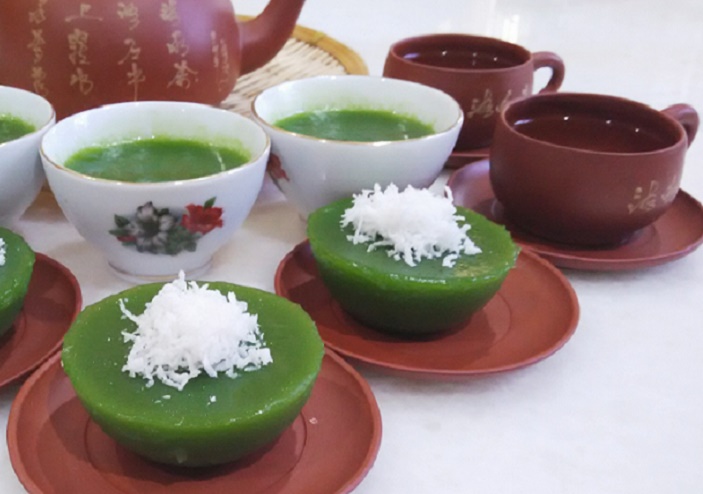
Pandan Kuih Kosui
This simple and much-loved kuih is particularly popular among Peranakan and Malay communities in Singapore and Malaysia. The abundance of pandan leaves in backyard gardens led to many recipes – both savoury and sweet – using this natural flavouring agent. Crowned with coconut topping – freshly grated, of course – this dessert is a taste of home!
Total time: 30 minutes
Difficulty: 2/5
Cost: S$2.00
Yields: 7-8 pieces
A: Coconut Topping
50g freshly grated coconut, white
¼ teaspoon salt
B: Batter
50g tapioca starch
40g rice flour
15g sago flour
100g granulated sugar
C: Wet ingredients
25 fresh pandan leaves, washed and sliced finely
350 ml water
1 teaspoon alkaline water*
D: Cooking Oil for greasing
1 tablespoon corn oil
DIRECTIONS:
1.Extracting pandan juice: Place pandan leaves and water into a food processor. Pulse or blitz until leaves are finely chopped up.
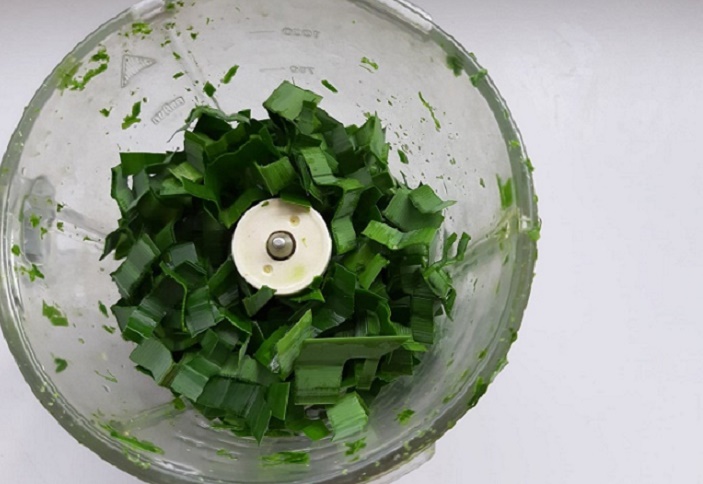
Strain out liquid using a fine-mesh strainer. Alternatively, use a muslin bag to extract pandan juice. Discard pandan pulp.
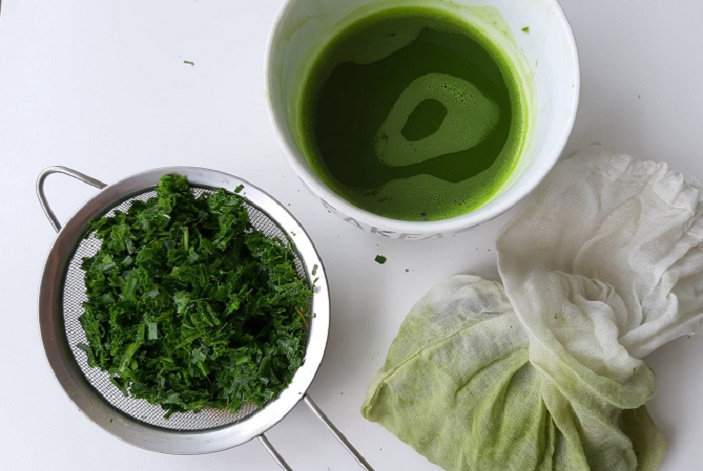
Using a whisk or fork, mix in alkaline water and blend well. Set it aside. This is C ingredients.
2. Coconut topping: Combine both ingredients and steam for 10 minutes. Set aside to cool.
3. Preparing batter: Combine tapioca, rice, sago flour and sugar in a medium mixing bowl. Using a spatula, gently fold into C ingredients until you get a smooth batter.
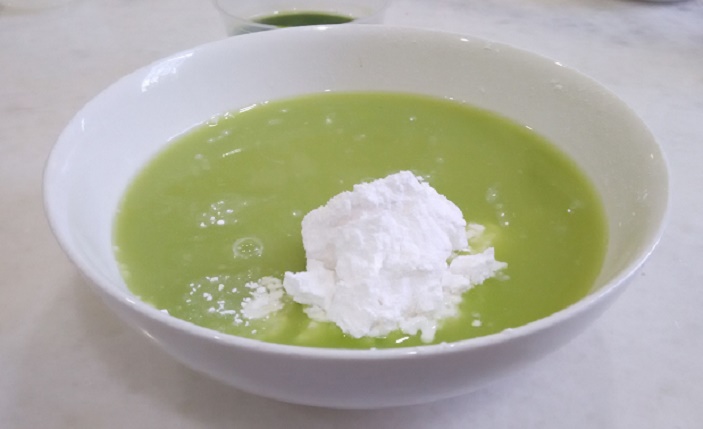
Using a strainer, strain batter to remove lumps if any.
4. Using a double-boiling method, gently simmer batter over low heat for 1-2 minutes until lightly thickened. Strain batter for a lump free smoother kuih.
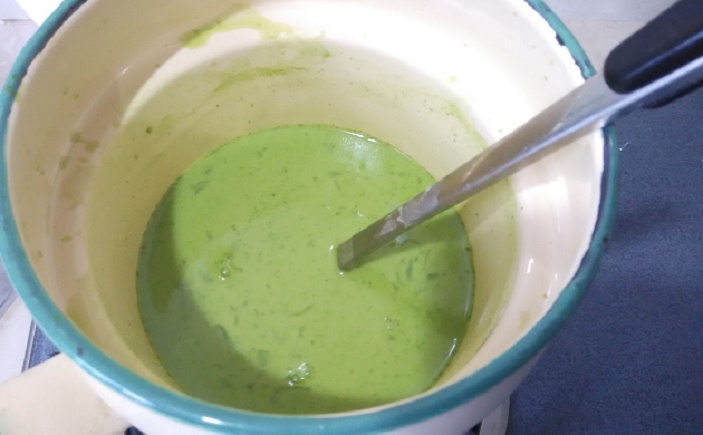
5. Steaming: Fill up a steamer or wok with water reaching steaming rack. Heat water to boiling point. Reduce heat to medium high.
6. Using a pastry brush, lightly grease teacups (70ml) with oil. Place tea cups into steamer to preheat for 5 minutes. Lift wok or steamer cover gently to ensure no water droplets fall into cups.
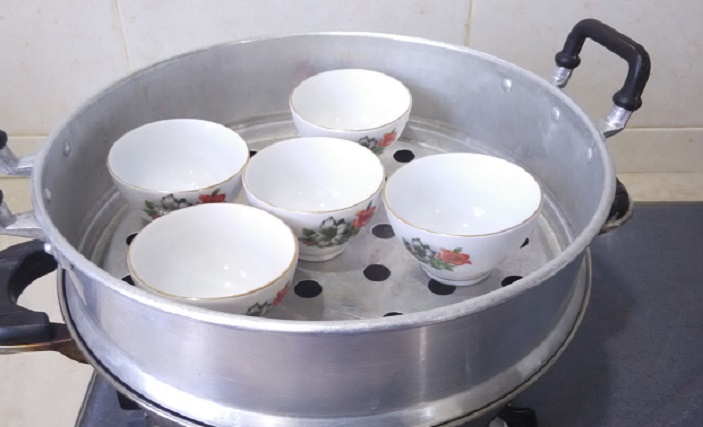
7. Stir batter, then pour until each tea cup is ¾ full.
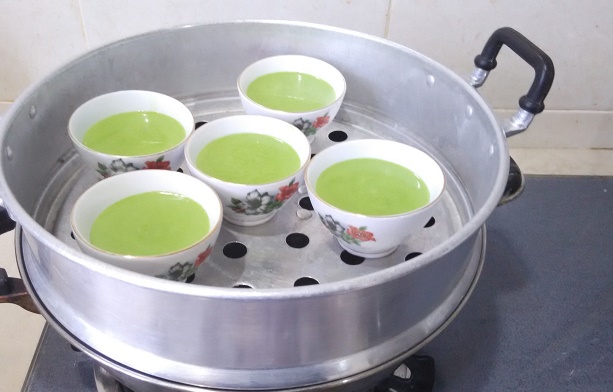
9. Steam for 15 minutes or until top of each kuih is set and firm to the touch and turns dark green. Allow kuih to cool down for 5 minutes.
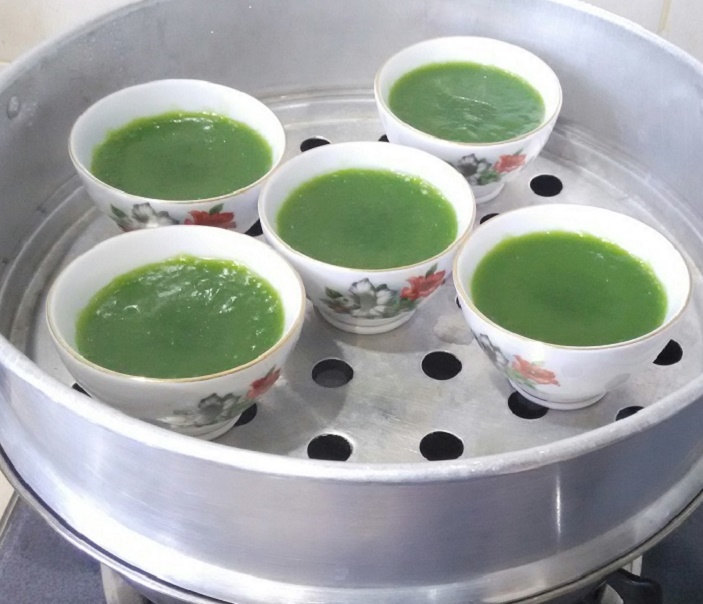
10. To unmould kuih, insert a small rubber spatula into cup. Run it against the circumference of cup, then lift gently up.
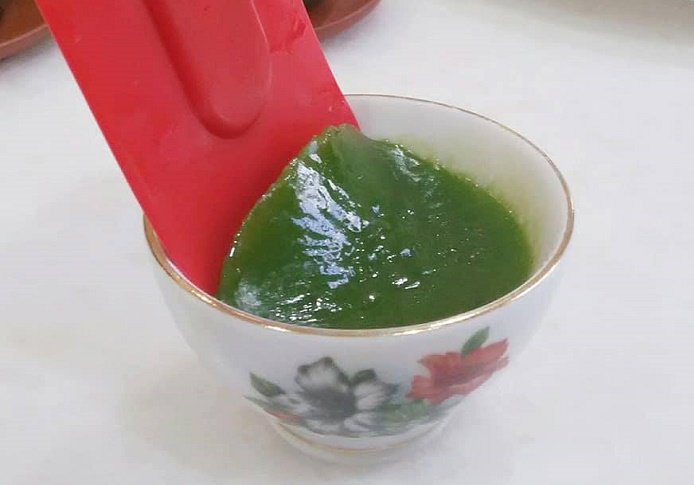
11. Serve with coconut topping and Chinese tea.
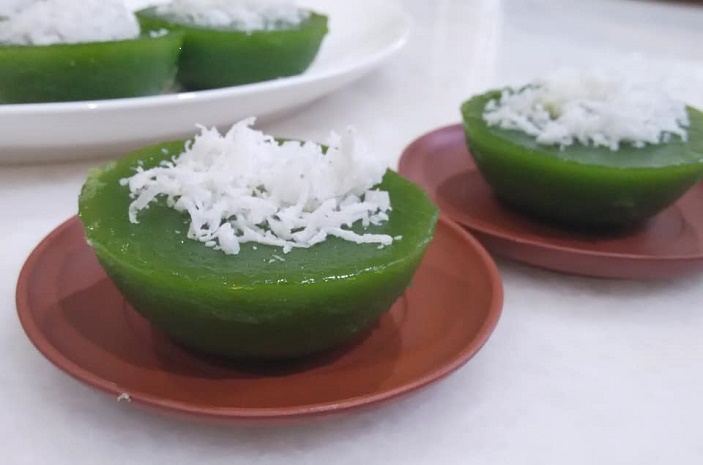
TIP: Tea cups can be replaced with porcelain cups of 70ml capacity. Alternatively, pour batter into a glass container and steam until top of kuih sets much like agar agar or jelly – when cooked, it is firm to the touch.
NOTE: This kuih has a springy, bouncy texture which is attributed to tapioca starch. Rice flour is added for a softer and yielding bounce.
* Alkaline water: This is also called lye water (jian shui) or Chinese alkaline solution which contains baking soda and potassium carbonate. It is often used to make Chinese dumplings and noodles to add bounce to the dough.
TECHNIQUE: For a smooth texture, always stir batter before pouring it into cups. Fill tea cups with batter only when about to steam kuih. Preheat teacups after greasing – this is an essential step to warm cups up, making it easier to unmould cooked kuih as the oil coating prevents batter from sticking to the base of tea cups.
PHOTOS: Yeoh Lay See
Click on www.storm.sg/food for more recipes and reviews of restaurants.
If you have a simple recipe you would like to share, do email it to whipitup@storm.sg


















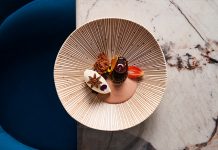





Can I opt out alkaline water.